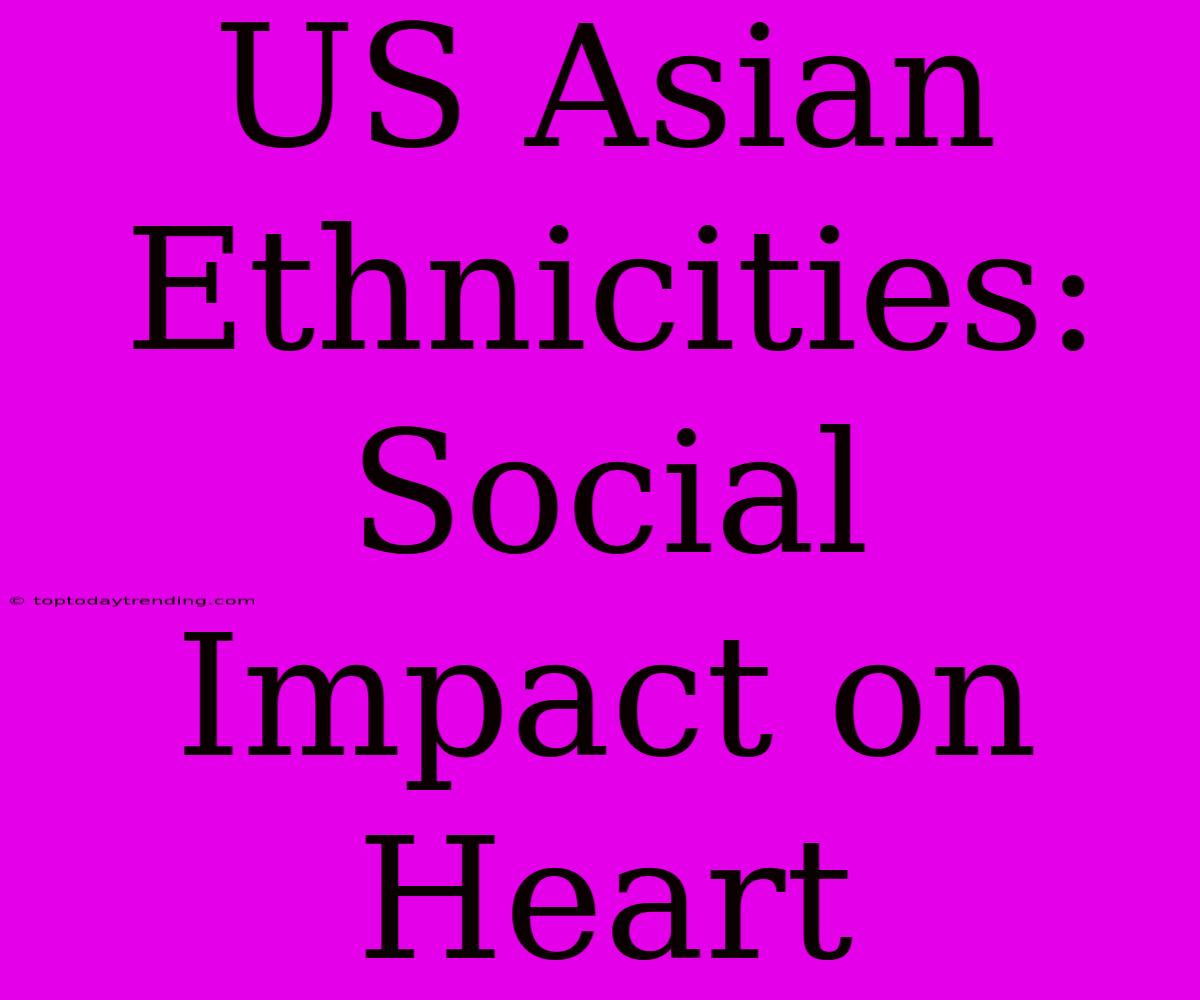The Impact of US Asian Ethnicities on Heart Health
Introduction:
The United States is home to a diverse population, including a growing Asian American population. While Asian Americans are often considered a "model minority" due to their high socioeconomic achievements, they also face significant health disparities, particularly when it comes to heart health. This article will delve into the complex interplay between US Asian ethnicities and their impact on heart health.
Understanding the Diverse Asian American Population:
The term "Asian American" encompasses a vast and heterogeneous group of people with diverse origins, cultures, languages, and experiences. It is essential to recognize the unique health considerations of specific Asian ethnicities, as they may have distinct genetic predispositions and health behaviors.
Factors Contributing to Heart Health Disparities:
1. Genetic Predispositions:
- Elevated Risk of Specific Conditions: Certain Asian ethnicities may have a higher genetic predisposition to conditions like hypertension, hyperlipidemia, and diabetes, which are significant risk factors for heart disease.
- Differences in Lipid Profiles: Variations in lipid profiles, such as elevated LDL cholesterol and lower HDL cholesterol, have been observed in specific Asian ethnicities, increasing their risk of heart disease.
2. Lifestyle and Socioeconomic Factors:
- Dietary Patterns: Traditional Asian diets may contribute to both positive and negative health outcomes. While some diets emphasize fresh fruits and vegetables, others may be high in sodium and saturated fats.
- Stress and Socioeconomic Factors: Acculturation, stress, and discrimination can have profound effects on mental health and heart health. Additionally, disparities in access to healthcare, education, and socioeconomic resources contribute to health disparities.
3. Cultural Beliefs and Healthcare Practices:
- Stigma and Misconceptions: Cultural beliefs and misconceptions about heart disease, as well as language barriers, can hinder timely access to healthcare and contribute to delayed diagnosis and treatment.
- Traditional Healthcare Practices: Some Asian Americans may rely on traditional healthcare practices that may not be integrated with Western medicine, potentially leading to delayed diagnosis and treatment.
Specific Ethnic Considerations:
- Chinese Americans: Have a higher prevalence of hypertension and diabetes, along with unique genetic variations impacting heart disease risk.
- Japanese Americans: Often experience a lower prevalence of heart disease compared to other Asian ethnicities, but are still at risk for heart disease.
- Vietnamese Americans: Face challenges in accessing healthcare due to language barriers, poverty, and cultural beliefs that may lead to underdiagnosis and treatment.
Addressing Heart Health Disparities:
1. Education and Awareness: Raising awareness about heart disease and its risk factors among Asian Americans through culturally tailored campaigns and community outreach is crucial.
2. Access to Healthcare: Improving access to healthcare through culturally competent healthcare providers, language services, and financial assistance can help address disparities in health outcomes.
3. Research and Data Collection: Conducting research on the specific needs and health risks of different Asian ethnicities is essential for developing effective interventions and tailored approaches.
4. Policy and Advocacy: Advocating for policies that address socioeconomic disparities and provide equitable access to healthcare resources is vital to improve heart health outcomes for Asian Americans.
Conclusion:
The heart health of US Asian ethnicities is a multifaceted issue influenced by genetic, lifestyle, cultural, and socioeconomic factors. Addressing the specific needs and challenges faced by different Asian ethnicities is crucial to reducing disparities in heart health and promoting equity in health outcomes. By promoting education, access to healthcare, research, and advocacy, we can create a healthier future for all Asian Americans.

